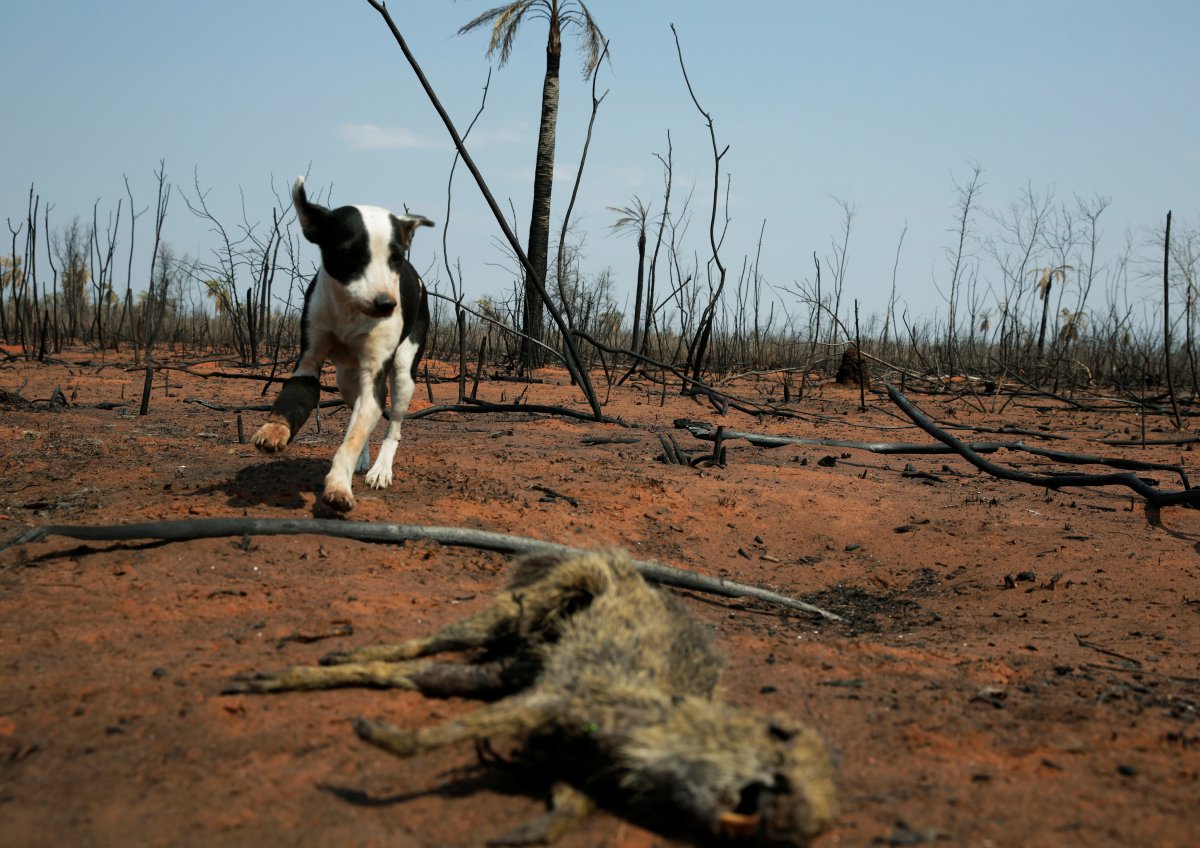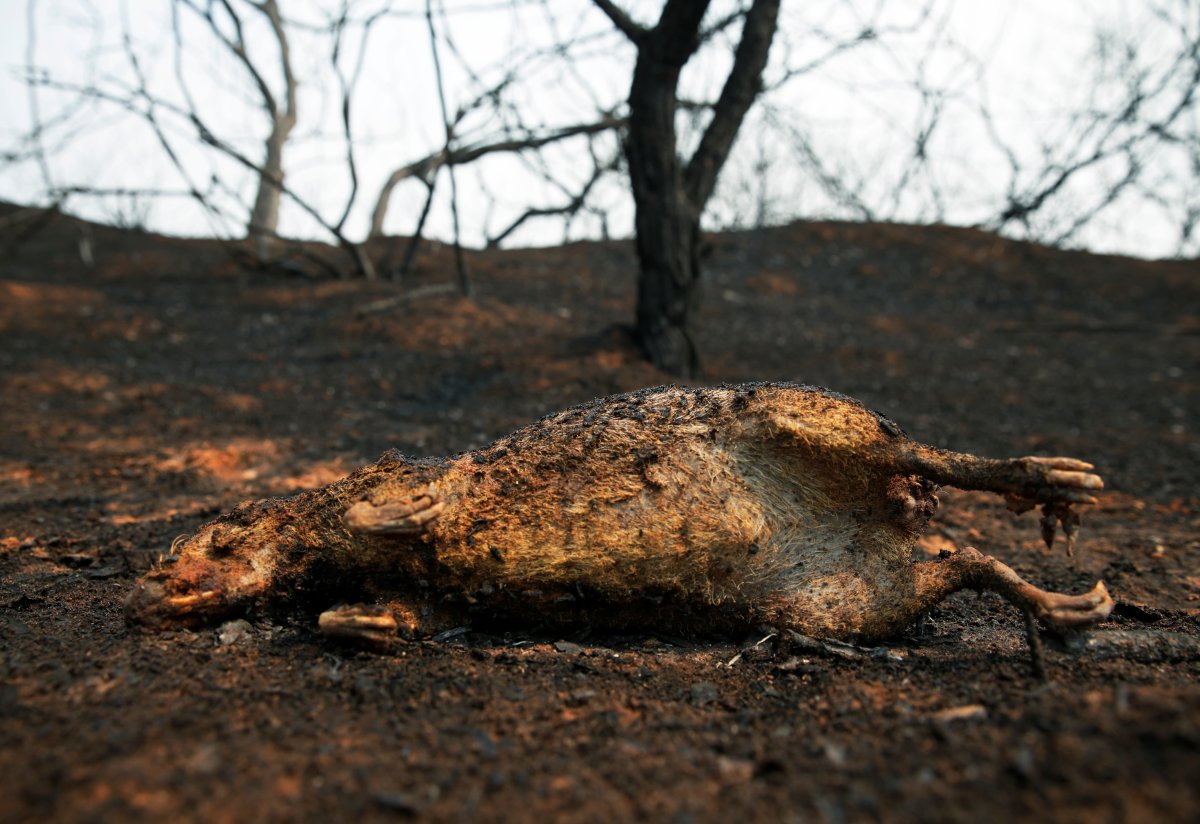Warning: This story contains graphic content some readers may find disturbing. Discretion is advised.

More than two million wild animals have been consumed by record-breaking wildfires in Bolivia, leaving experts to fear “irreversible” damage.
Sandra Quiroga, of Santa Cruz University in Bolivia, told AFP that biologists investigating the fire-devastated tropical savanna fear the number of animals missing or killed may exceed 2.3 million.
Researchers are on the ground trying to determine the scope of the damage. They claim animal species of all kinds have perished in the fires.
Wild cats like ocelots and jaguars, as well as deer and llamas, are among the victims. Smaller forest animals like rodents, lizards and anteaters have also died.
Images from affected towns and forests show animal carcasses lying charred in swathes of burned-out forests.
“The forest is totally charred and the damage is irreversible,” Quiroga told AFP.
Since January, more than 4.1 hectares of biodiverse forest have been decimated by fires.
This year’s burn has already topped the previous record — 3.8 million hectares in 2010.

Get breaking National news
Most of Bolivia’s fires are in dry forests, prairies and farmland. The southeastern Chiquitania region has been particularly hard-hit.
A lengthy drought and strong winds have caused the fires to spread and become out of control.
Bolivian authorities blame climate change, but environmentalists blame the government.
While it’s common for farmers and ranchers to start fires to clear land, activists claim government measures surrounding agriculture have exacerbated the fires.
A recent order has fuelled the expansion of cattle ranching and soy farming in forested regions, ultimately making the burn practice more risky.
Bolivian President Evo Morales has been criticized for his agricultural goals. In the past, he has called the country’s commodities “new gold” which he believes will help bolster and diversify the economy.
In August, Bolivia commissioned firefighting planes, helicopters, more than 5,000 firefighters and other responders to help battle the blazes.
The response has since been scaled back, but the fires have shown little sign of dissipating.
“We’re completely exhausted,” Jose Payme, an indigenous Chiquitano chief, told Reuters.
“We’ve been working day and night for two months to placate this fire that’s so strong, and this draught that’s so strong. It’s impossible.”
In some areas, blazes previously put out have reignited. The fires have also started to creep toward the Noel Kempff Mercado National Park – an access-point to the Amazon rainforest.
WATCH: (Sept. 5, 2019) Brazilian farmers say they’re fighting losing battle against Amazon fires

In Brazil, which neighbours Bolivia, the Amazon is still battling its own war with fire.
In Brazil alone, more than 2,400 miles of the Amazon has been deforested this year.
The number of fires is up 47 per cent from last year, with a record 60,472 reported so far, according to government data.
Like in Bolivia, many of the fires have been set intentionally by farmers and ranchers as Brazil’s president and government pushes for agricultural expansion.
Recently, a group of international donors agreed to put up $500 million to help protect tropical rainforests worldwide, including the Amazon.
The announcement was made by France’s president at a recent UN meeting, which Brazil did not attend.
— With files from the Associated Press and Reuters
- Hurricane Helene claims lives of Georgia mother and her one-month-old twins
- Tropical Storm Milton forms in Gulf of Mexico, could intensify as a hurricane threatening Florida
- Imperial Oil to pay hefty fine for 2021 oil spill that sickened residents
- Northern lights set to shine in parts of Canada this weekend. Here’s where













Comments